COMMUNITY CLEAN-UP CAMPAIGN
Johannesburg: Yeoville clean-up delivers pride and pressure for real change
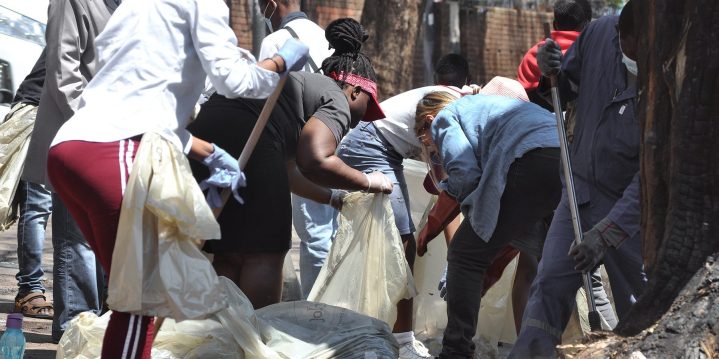
When a community of residents takes charge on a hyperlocal level, their actions can inspire – or force – those in official positions to do the job they are paid for.
Yeoville, a suburb of inner-city Johannesburg, has a rich history. Among other claims to fame it has probably contributed larger numbers of Cabinet ministers, MPs and senior civil servants than most communities after the first democratic elections in 1994. This sadly meant an exodus of many people to more privileged neighbourhoods.
In the past decade we have seen Yeoville’s steady deterioration, with roads being neglected, waste piling up and a serious decline in safety and security.
To compound matters, regular rolling blackouts result in water outages owing to a loss of pump power.
To try to bring dignity back to Yeoville, clean-up efforts have been under way for some time, led by a member of the Yeoville Bellevue Ratepayers’ Association, which took the lead in cleaning up Stewart Drive Park and surrounding streets that had effectively become a dumping ground.
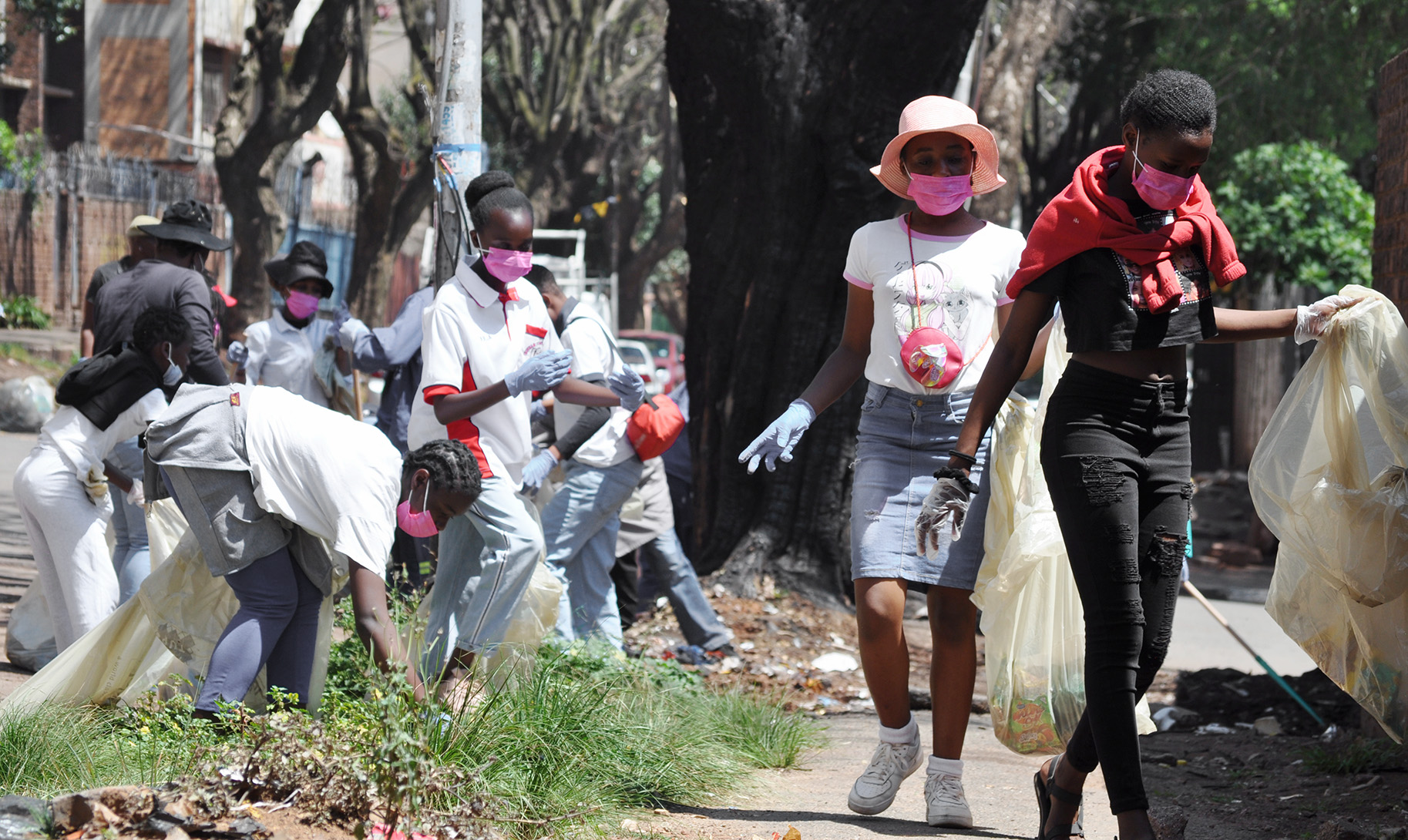
Community clean up along Page Street, Yeoville. (Photo: Seed Under)
Today, the park hosts a regular Saturday morning litter pick-up session to make sure that children and the community can continue to use it with pride.
Inspired by this example, residents in one of the buildings, Xanadu, organised about 50 neighbours to clean up the roads around their building at the end of August. This was part of an effort to organise the residents to improve the governance in their building and elect new trustees.
About 60 bags of litter were collected.
Then, on 30 September, under the sponsorship of the ratepayers’ association, and framed also as a Heritage Month event, we set up a point table where participants could register, pick up gloves, bin bags, brooms, spades and rakes.
They were set to work in small groups, dispersing in multiple directions.
To our delight, members of the local Community Policing Forum and Pikitup staff joined dozens of residents and even former Yeovillites who remember their formative stomping ground with fondness.
Churches joined in and one, Covenant Ministry Prayers, opened its home and provided water and a space for volunteers to congregate. A few business leaders joined in too and supported us with water and refreshments, and encouraged their peers to take responsibility for their shop fronts.
One of the most moving groups of volunteers came from the Yeoville Community School and the Yeoville Boys’ Primary School, where an emerging organisation, called the Don’t Waste Art Movement, is working to set up school gardens alongside an environmental awareness campaign. To see teachers with their enthusiastic primary school learners was inspirational.
Numbers soared above 250 and at least three additional visits to the stores were needed for extra gloves.
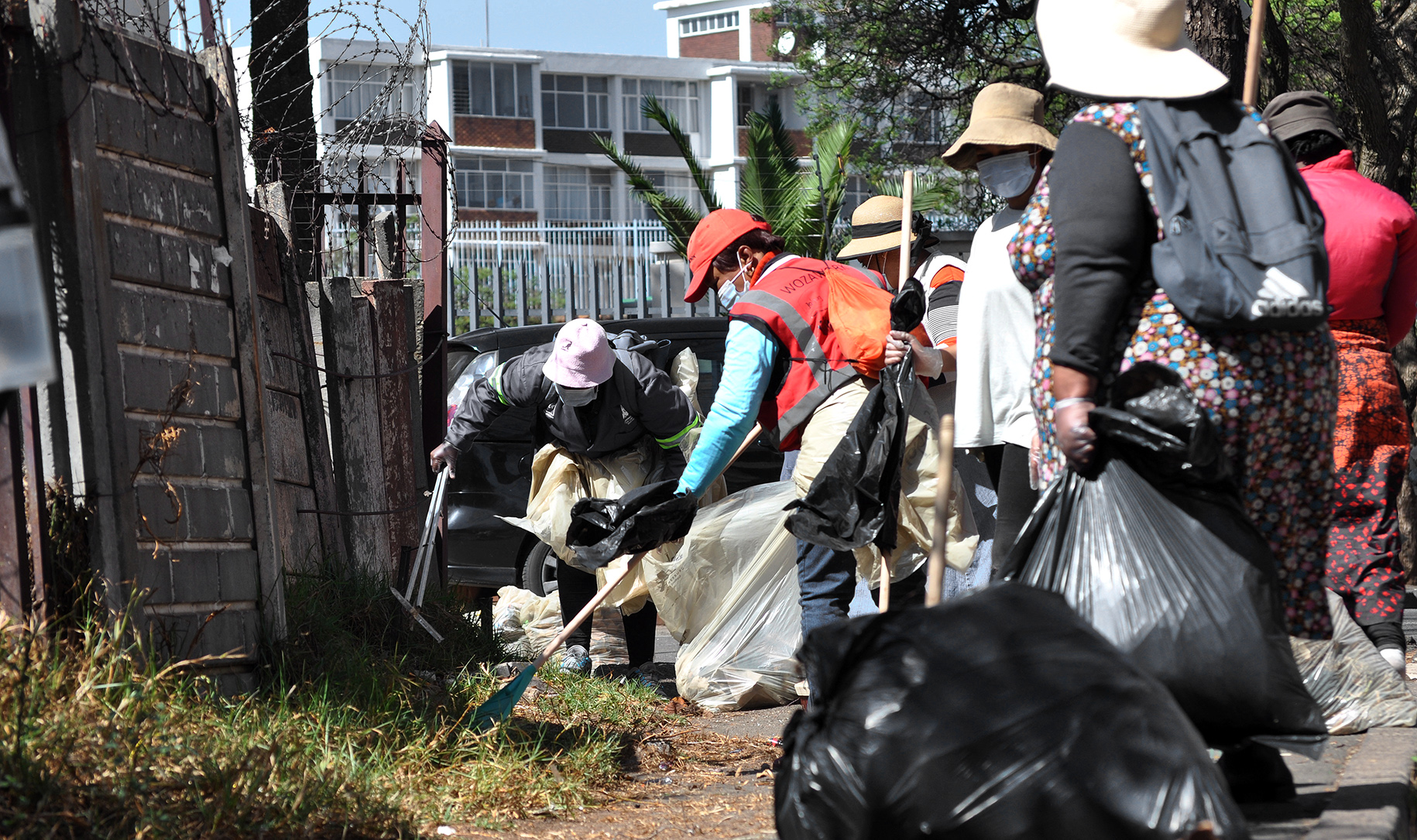
Community clean up of Cavendish Road, Yeoville. (Photo: Seed Under)
It was a blisteringly hot day, but still our teams worked until they dropped, sweeping up huge quantities of broken glass, cigarette filters, sweet wrappers, chicken bones and much more, leaving a significant area of Yeoville looking like a place where the community really cared for its welfare.
Much more than ‘just’ a clean-up
Having come out of the other end of hopelessness, people are realising that we do have the power to bring about change. And perhaps one of the ways forward is not to wait for governmental action, but to pressure the government to do its job through action from below.
There are some good people in municipalities and their various utilities – those who want to do the right thing even if their leadership is primarily focused on political games and intrigue, as illustrated by the City of Johannesburg’s mayoral debacles.
Participating in such an event is eye-opening. It allowed us to see a multitude of benefits that reach way beyond “just” the (not insignificant) advantages of a clean neighbourhood.
Here are just a few:
Mobilising tool: There is a massive hunger for agency out there. With not too much work, we more than quadrupled our numbers. People want to join in collective solidarity and they find joy in meeting and working with others towards a simple, common objective. This kind of experience is an awakening one – it quietly says to people that we can do things and we have agency.
This is not to be taken lightly: it is the difference between a passive, cynical or hopeless undercurrent and what we experienced on that recent inspirational Saturday – a foundational mindset change.
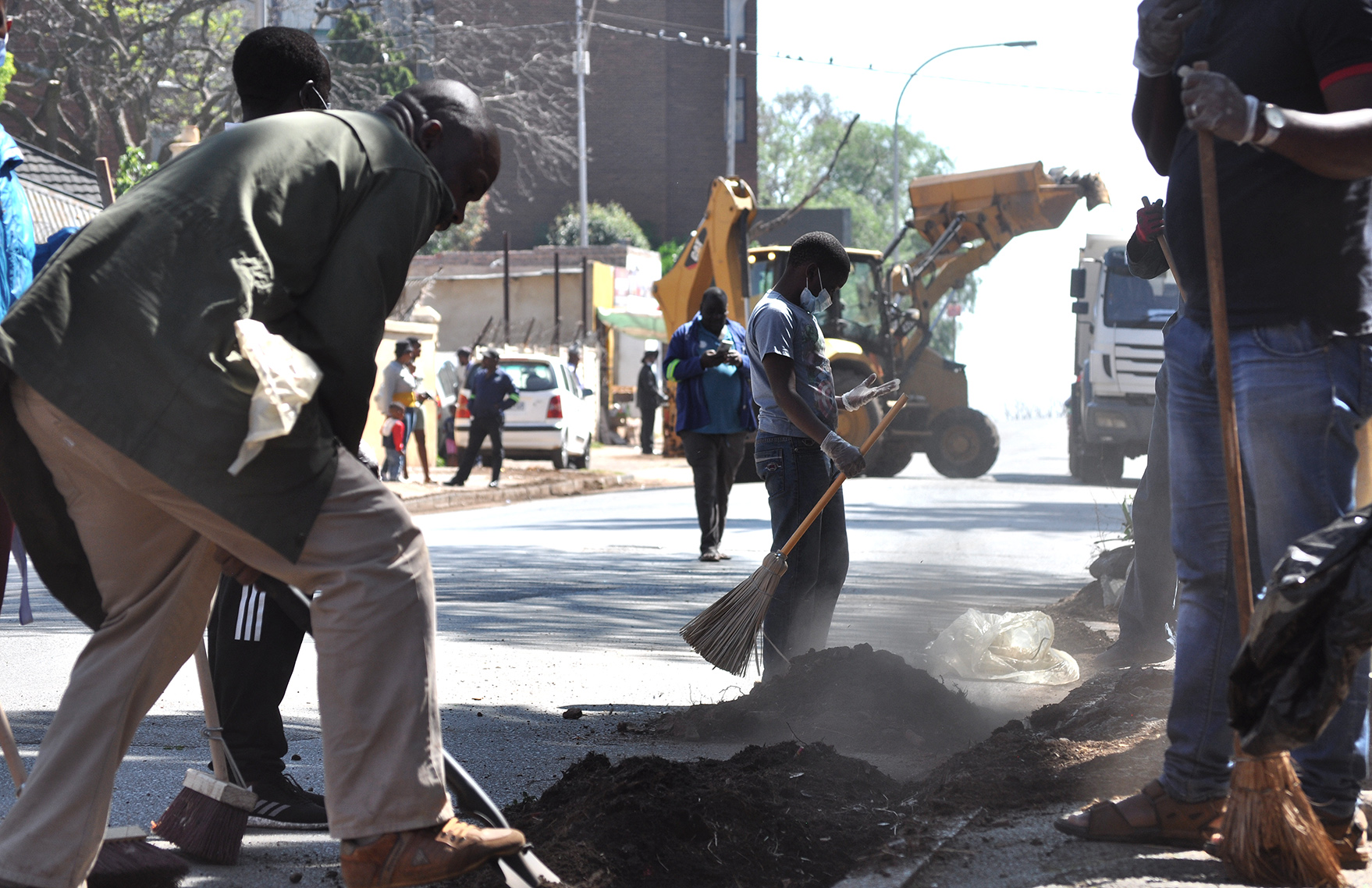
Community clean up of Cavendish Road, Yeoville. (Photo: Seed Under)
What is extraordinary in our present environment is the overwhelming readiness of grassroots communities to climb on the bus.
This is evidenced by the number of people who stopped us to ask if they could come to “the next one”. Please come to Jolly Street next. “I will join!” said a resident.
Why awareness of local, active community organisations is so important: There is real power in getting organised, even if it will take a lot to improve things permanently. We, as the ratepayers’ association, like many other community-based structures, became understandably quiet over the Covid period. It took a while for us to re-energise the working committee. Thereafter, in no time we had generated a dozen different initiatives pertinent to the lives of local residents. But this is not enough. We need an organisation to which people feel they belong and with which they can identify.
It emerges that a community clean-up campaign conducted regularly and consistently over a period of time is one powerful way of bringing an organisation into the foreground.
Key here is the non-party-political and non-denominational character of the organisation, in addition to an unambiguous commitment to cross-national and -ethnic and nonracial participation. We will not be divided by such things. And, in the long run, we have a vision of street-based and area committees, which encourages the emergence of local leadership.
Gaining municipal recognition: There is nothing like a passive, seemingly uninterested community to embolden municipal non-delivery and kicking the can down to the bottom of the priority list.
Surprisingly, the clean-up campaign has resulted in traction from a key waste service provider, Pikitup. Our ratepayers’ association chairperson, Reverend Tsepo Matubatuba, contacted the person responsible for this area, who committed to being there on the day with a tractor loader backhoe and a team of staff that could work well with the community volunteers.
The lesson here is to find the good people who still care even though they may be working in dysfunctional entities.
This is how it should be, of course. We pay rates and taxes, not to mention monthly service bills. Clean-ups are not and should never become a substitute for government agencies doing their jobs.
To the contrary, the mobilisation brought about by these kinds of campaigns needs to be used as a way of bringing non-delivery problems to the surface and as a stepping stone on which advocacy for long-term delivery can take place.
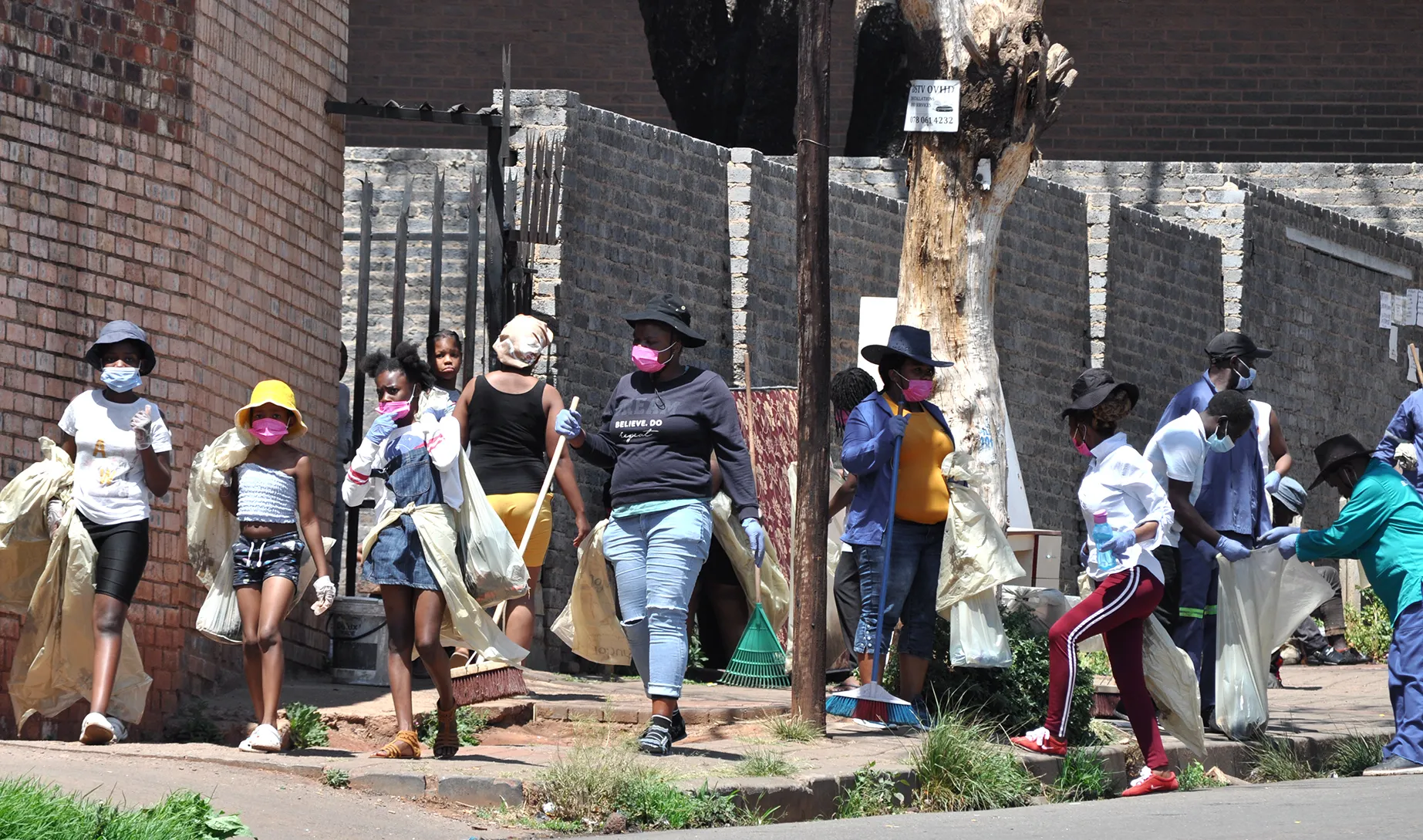
Community clean up of Cavendish Road, Yeoville. (Photo: Seed Under)
Let’s start with the delivery of street bins – that actually enable environmentally minded pedestrians to dispose of litter and by example encourage others to follow suit. Nowhere does a littering culture change overnight, and bins are a critical tool towards this end. Next, our waste collector must provide a regular and comprehensive job in the neighbourhood.
Perhaps thereafter we can start focusing on a new green and colourful plant life in our areas, tree pruning, grass cutting, road markings, cleaning stormwater drains and the rest of that long list. We have got our work cut out, but the resulting benefits in building sustainable participatory community organisations is the cherry on the top.
In Yeoville, community members say they are keen to make this a monthly campaign and we hear rumblings that City Parks might be coming with plants and flowers to further consolidate these efforts. We would warmly welcome their presence.
Some will be dismissive of these efforts because they do not address the systemic failure of government at the national, provincial and local level. True, if we did not have the scale of looting and corruption that we have, and if we had a political leadership that was less arrogant and listened to people more, we would not see so many townships and urban and rural communities suffer as much as they do.
But there is no contradiction between such local efforts at cleaning local environments and cleaning the corruption, ineptitude and ineffectiveness of the government.
The moment of history in which we find ourselves requires us to say that pessimism is a luxury we simply cannot afford. The pessimism of our analysis of the situation we find ourselves in can best be overcome by the optimism of our thought and creativity, and by our active involvement. DM
Merle Favis, Louisa Zondo and Kumi Naidoo are members of the Yeoville Bellevue Ratepayers’ Association.
This story first appeared in our weekly Daily Maverick 168 newspaper, which is available countrywide for R29.
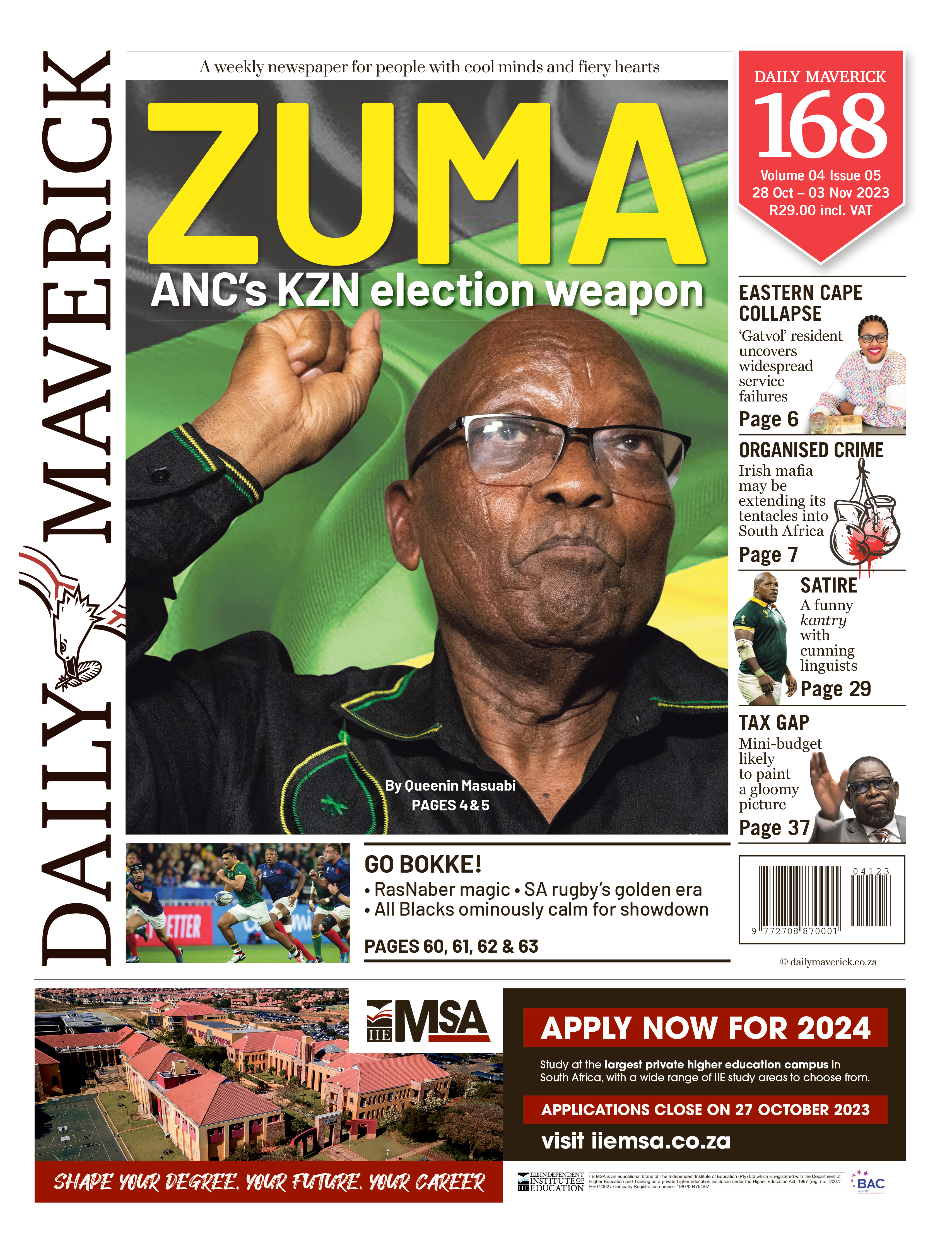















 Become an Insider
Become an Insider
The advantage of doing this is that it encourages a sense of pride and investment in the neighbourhood that will make someone think twice before throwing a plastic wrapper or KFC box out of the car window. Hopefully the word spreads in the neighbourhood and soon everyone starts feeling the “smell of the place”. It’s about respecting your suburb and your neighbours. Never rely on politicians. They’re a waste of money.